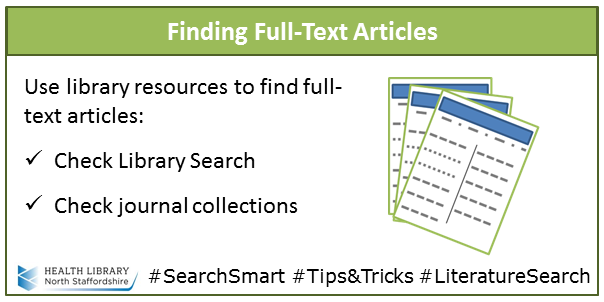Once you have completed
your search and got your list of results, you need to find the full-text of the
article in order to determine whether it is suitable to answer your question.
 |
| Use Library Resources to find full-text articles |
The library has a wealth
of online resources. By using library databases, you’ll often get a link
automatically to the full-text article if it is available from our
subscriptions. Or you can check our online collections to see if the
subscription is covered elsewhere.
We have a range of tutorials
that can help you to find full-text articles:
- What is an
Article? - learn how
to recognise and find academic articles
- Find
Articles for a Project
- learn the steps you need to follow to find articles for your projects
- Find an
Article from a Reference
- learn how to find the full-text of an article when you have a reference
- Finding
Keele eJournals -
learn how to find a Keele ejournal and access full-text articles
- Finding NHS
eJournals - you
can find all our NHS-subscribed ejournals by completing this etutorial
Comments
Post a Comment